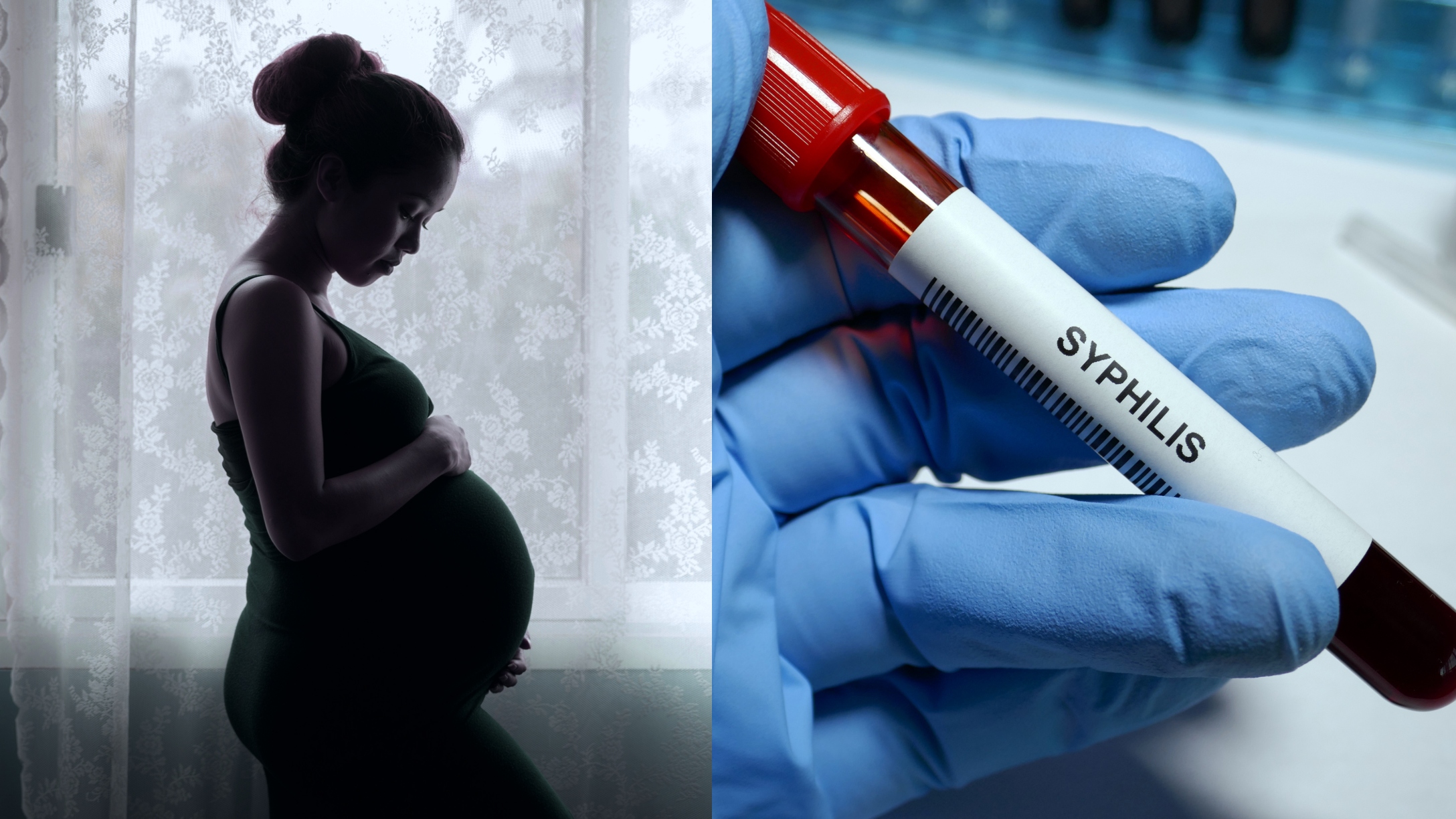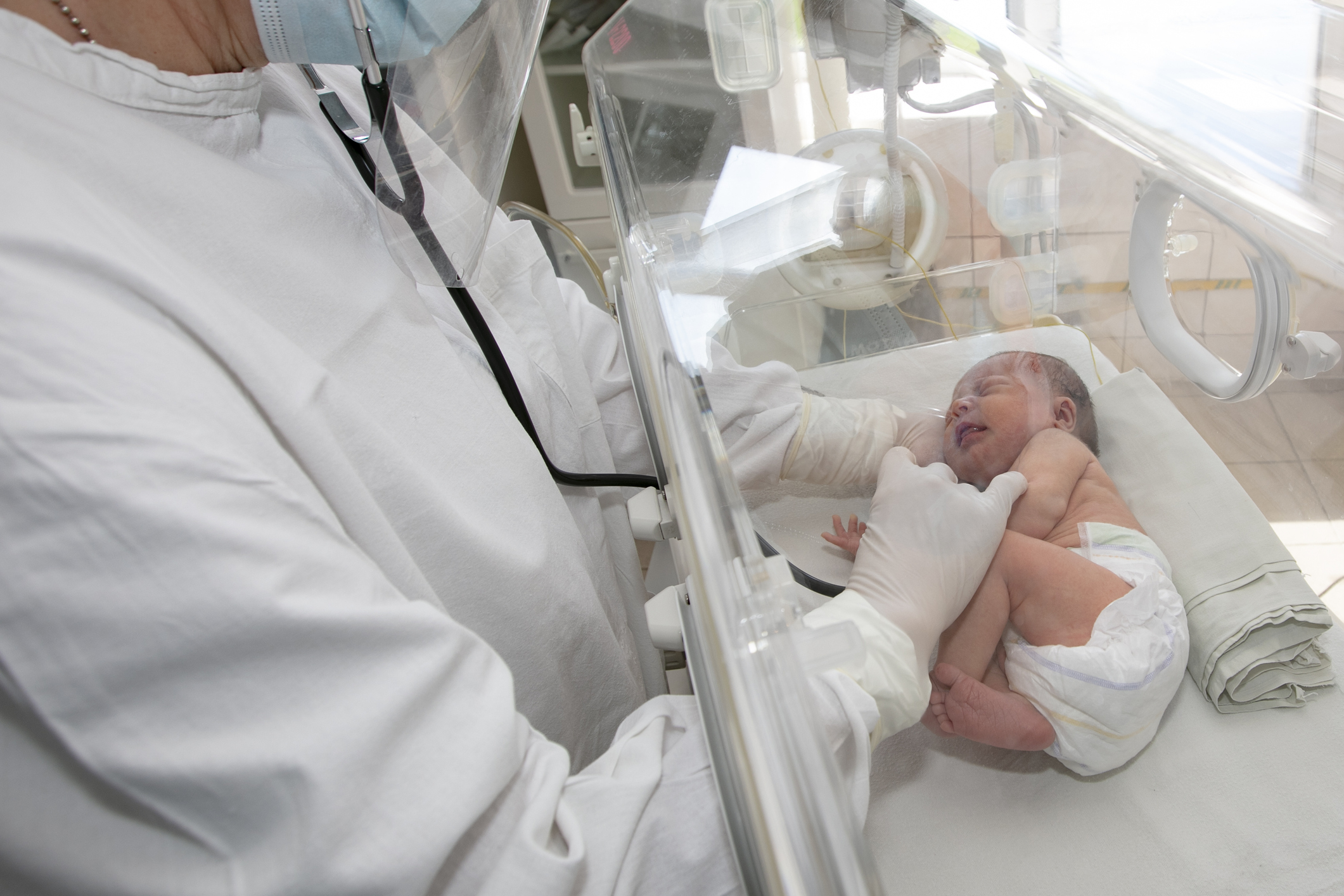
Health officials in Houston are reporting a massive increase in syphilis cases among women over the past few years. The continually growing outbreak is of particular concern when it comes to pregnant women, as the sexually transmitted disease can be fatal to unborn babies and newborns. Now, the Houston Health Department has launched a rapid public health response to the local outbreak.
While the Centers for Disease Control and Prevention reports that cases of syphilis and other STDs, like gonorrhea and chlamydia, have risen across the country in the past couple of decades, health officials in Houston say the rise in congenital syphilis — meaning a mother passes the disease to her baby during pregnancy — has been rapid.
More from CafeMom: Parents Refusing Newborn Eye Ointment: Is It Safe?
The rise in syphilis cases in the past few years is startling.
Today.com reports that syphilis cases among women in Houston have risen a whopping 128% since 2019. There were reportedly 295 new cases among women in 2019, which increased to 674 cases in 2022.
Among all people — both men and women — the increase in that time period was 57%.
More from CafeMom: 10 Things Only NICU Moms Understand
Cases of congenital syphilis have multiplied exponentially.
In 2016 in Houston and Harris County, there were reportedly 16 congenital syphilis cases. In 2021, there were 151 cases, marking a nine-fold increase, notes the Houston Health Department. But the disease is preventable.
"It is crucial for pregnant women to seek prenatal care and syphilis testing to protect themselves from an infection that could result in the deaths of their babies,” Marlene McNeese Ward, deputy assistant director in the health department’s Bureau of HIV/STI and Viral Hepatitis Prevention, noted in a statement released on July 13.
Congenital syphilis is often deadly.

"Approximately 40% of babies born to women with untreated syphilis can be stillborn or die from the infection as a newborn. Babies born with congenital syphilis can have bone damage, severe anemia, enlarged liver and spleen, jaundice, nerve problems causing blindness or deafness, meningitis, or skin rashes," the CDC states.
Additionally, syphilis is associated with a higher risk of HIV.
"People with syphilis are at increased risk of HIV infection due to the painless sore that develops at the site of sexual contact during the disease’s primary stage. New syphilis infections are known as primary, secondary and early latent syphilis," the Houston Health Department statement reads.
Expectant mothers are encouraged to be tested for syphilis at their first prenatal visit.
The Houston Health Department has launched a rapid response effort to the ongoing syphilis outbreak that includes, "increasing screening opportunities, targeting hotspots and mobilizing community partners to curb new infections."
Additionally, it encourages all expectant mothers to be tested for syphilis at their first prenatal visit, some time in the third trimester of pregnancy, and at delivery. The health department is also waiving all clinical fees for STIs at its health centers, in order to make testing accessible to everyone, regardless of income.
Syphilis is easily treatable, but often goes undetected.
Syphilis is treated with antibiotics. If left untreated or not treated adequately, the disease will progress to a secondary stage marked by a rash. Some individuals may also experience fever, swollen lymph glands, sore throat, patchy hair loss, headaches, weight loss, muscle aches, and fatigue, during the secondary stage, according to the Houston Health Department.
If allowed to progress even further, the bacteria that causes the syphilis infection may attack internal organs including, the brain, heart, eyes, liver, and bones.




